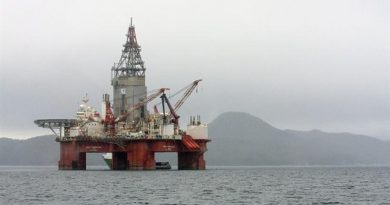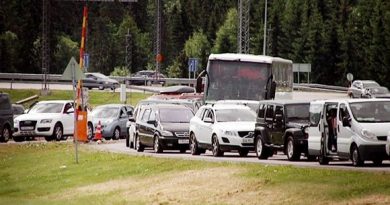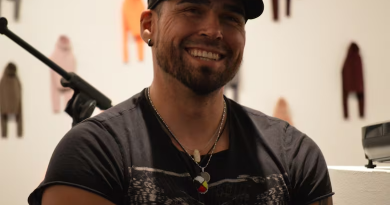‘We weren’t prepared’: Canada’s Northwest Territories economy in a battle for survival amid COVID-19
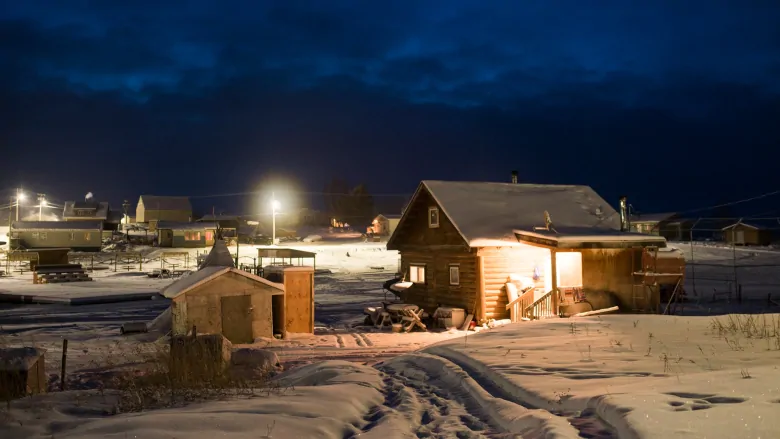
This story is part of The COVID Economy, a CBC News series looking at how the uncertainty of the coronavirus pandemic is affecting jobs, manufacturing and business in regions across Canada.
Anne Jackson could always count on springtime to bring guests to her bed and breakfast in Fort Good Hope, N.W.T.
That’s the time every year when the territorial government always seemed to send up officials to the fly-in community on the Mackenzie River, about 800 kilometres from Yellowknife. Lawyers, health officials, housing workers, accountants — they’d arrive in Fort Good Hope like clockwork.
Usually, they’d stay at Jackson’s Bed and Breakfast, where Anne’s dad, Wilfred, is quick with a story, a joke or piece of wisdom learned out in the bush, shared over tea or bacon and eggs. Those springtime guests helped sustain the business through the lean seasons.
But no one is coming this spring.
With all but the most essential travel and gatherings banned to prevent the spread of COVID-19, the Northwest Territories is very nearly locked down. It’s starving an already lean economy even further and it’s left many worried about how bad things can get.
“It’s been slow, and when I say slow, there’s nothing, no guests,” Jackson said. “We weren’t prepared for this.”

Like business owners across Canada, Jackson is poring over her accounts. She’s at the kitchen table, figuring, adding, subtracting, doing the mathematical gymnastics it requires to keep paying the bills without any money coming in. They’ve applied for relief, but nothing’s reached them yet.
On top of that, she’s watching as the first cases of COVID-19 appear in the North, hoping her community isn’t next.
“It’s like watching a movie,” Jackson said. “We’re isolated, but we have to talk about what happens if it does get here. The fear is that if it does, it will affect everybody. That’s what’s on everybody’s mind.”
COVID-19 and the N.W.T. economy
So far, COVID-19 has yet to gain a strong foothold in the Northwest Territories. There have been five confirmed cases and all have been isolated. There is no evidence of community spread at this time.
But officials have been aggressive, issuing strict orders that have forced most businesses to close and banned nearly all gatherings of people.
“It’s going to hurt a lot of people,” said Dave Ramsay, a business consultant in Yellowknife who was the Northwest Territories’ minister of industry from 2011 to 2015. He estimates up to 50 per cent of businesses won’t survive without adequate relief.
“These are small, medium-sized businesses that can’t weather the storm,” Ramsay said.
The economic fundamentals for the Northwest Territories weren’t particularly strong before the pandemic.
Its $5-billion GDP is driven by its three diamond mines and government. Its budding tourism industry, which relies heavily on tourists from Asia, has been shut down. Its tax base is small — about 75 per cent of the government’s revenue comes from Ottawa.
“We’re a ward of the state,” Ramsay said. “We have been for some time.”
Teetering mining industry
The mining industry, which already had problems, continues but not at full steam.
One mine, Ekati, has shut down and sent its workers home. The other two remain operational but at a limited capacity. They’ve sent some workers home with pay to protect their remote northern communities from the virus, and are taking on extra costs, such as chartered flights, to bring employees in from southern Canada. It remains unclear whether they are eligible for federal aid.
If those mines close, either because of health concerns or because of the global economic downturn following the pandemic, Ramsay and others say the results could be catastrophic.
“If we don’t have mining here in the N.W.T., we don’t have much of an economy,” Ramsay said.
Though it’s difficult to predict how the diamond industry will react to COVID-19, stocks have tumbled and analysts suggest the diamond supply will drop between 10 and 12 per cent next year.
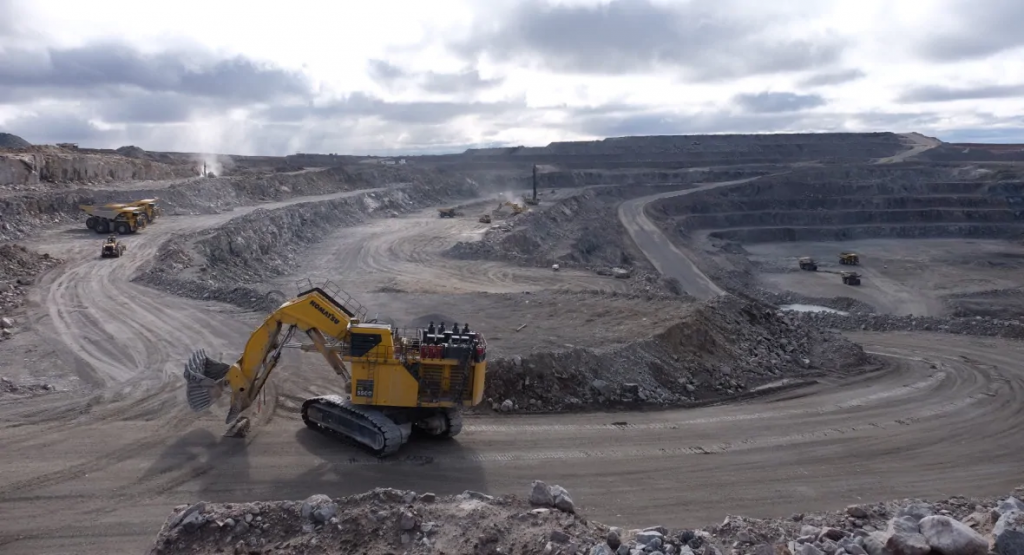
Ramsay also serves on the board of directors for Fortune Minerals, a company developing a mine project near Whati, N.W.T., and is already seeing investors shy away.
“It’s almost impossible to raise money out there in the markets,” he said. “It was tough before, and you throw a global pandemic in the mix, it becomes really tough.”
Ramsay’s hopeful the territory will convene an economic task force made up of business leaders and former politicians to come up with creative solutions.
‘Orders of magnitude worse’ than 2008-09 crisis
Though the Conference Board of Canada does not yet have an outlook on how COVID-19 will affect the northern economy, it predicts Canada’s GDP will contract by 4.3 per cent in 2020. If that number is applied to the Northwest Territories’ $5-billion GDP, that translates to a loss of about $250 million.
It’s not just the diamond mines facing an uncertain future. Northern airlines, which are lifelines to remote communities such as Fort Good Hope, all face questions about their long-term viability.
Watch | Prime Minister Justin Trudeau announces a $130-million northern relief package:
He says what he’s seeing now is much worse than the 2008-09 financial crisis.
“It was one thing in 2008 when money became an issue and credit became an issue,” he said. “This is many, many orders of magnitude worse. You’ve lost your customer base literally overnight.”
In Fort Smith, N.W.T., where Miltenberger lives, nearly all businesses are shuttered: restaurants, hair salons, anything in the service industry.
He’s concerned about how long-term economic hardships and anxiety will affect families, possibly making the territory’s well-documented social problems worse as time goes on.
Government triaging relief
So far, the Northwest Territories has offered businesses an aid package worth $21.5 million, mostly in waived fees, deferred payments and low-interest loans. That’s in addition to existing federal programs and a $130-million northern aid package Prime Minister Justin Trudeau announced last week.
For the most part, the $21.5 million represents money the territory is not taking in, and it’s unlikely to have much room to borrow more for future relief. That’s because of the federally imposed debt cap. The territory is only able to borrow $30 million before it hits its $1.3-billion limit.
N.W.T. Industry Minister Katrina Nokleby recognizes that if left too long, the territory’s economy may not recover from the coma it’s in now. She describes her work as triage, as she balances health and safety with the territory’s grim economic reality.
“Triage unfortunately is probably the best word for it,” Nokleby said. “Where are the priorities? What are the critical pieces? Where are we going?
“If we pack up shop right now and bunker everybody down under lock and key, we won’t have an economy to come back to.”
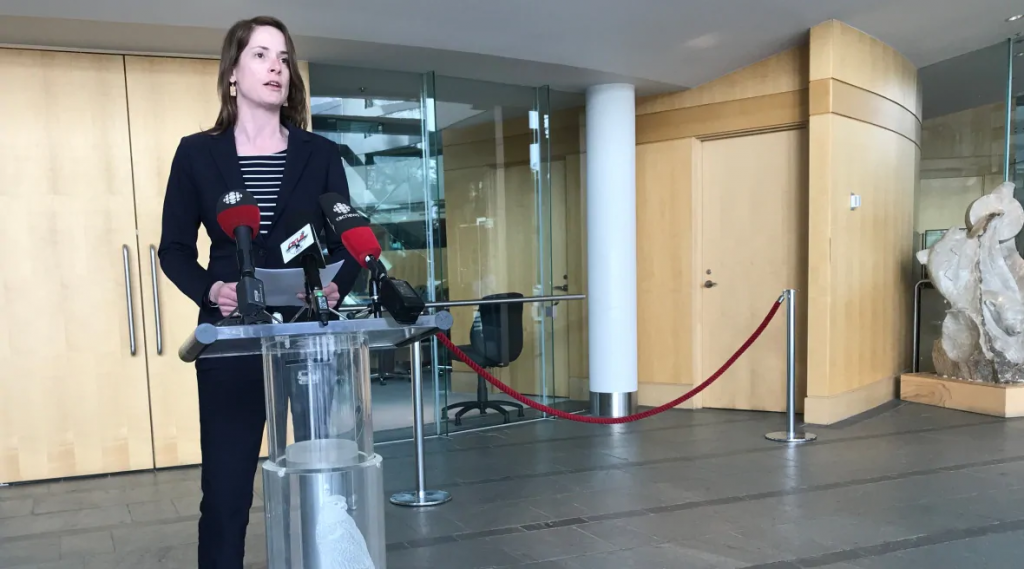
In the short term, Nokleby is looking at what businesses can be leveraged to help in the pandemic relief, delivering medical supplies, equipment or personnel. Long-term, she’s looking at approved government construction projects to see if they’re still safe to go ahead.
Amid these dire predictions, Nokleby does hope whatever the new normal is, will leave the territory more self-sufficient, with a stronger economy than before.
But to do that, the Northwest Territories’ economy needs to survive first.
Related stories from around the North:
Arctic: Roundup of COVID-19 responses around the Arctic, Eye on the Arctic
Canada: Lack of tourism, impact on mining unclear: how is northwestern Canada coping with COVID-19?, CBC News
Finland: Visits to commercial establishments down sharply in Finnish Lapland, Google data, Yle News
Greenland: COVID-19: Arctic science expedition postpones flight campaign after trainee tests positive for virus, Eye on the Arctic
Norway: Norwegian Arctic wilderness tourism hit particularly hard by coronavirus, The Independent Barents Observer
Russia: Novatek construction site faces fastest growing coronavirus outbreak in northern Russia, The Independent Barents Observer
Sweden: Why Sweden can’t declare a state of emergency over COVID-19, Radio Sweden
United States: Arctic borough pulls out of deal with bankrupt Alaskan airline, reaffirms right to seize assets in emergency, Alaska Public Media

